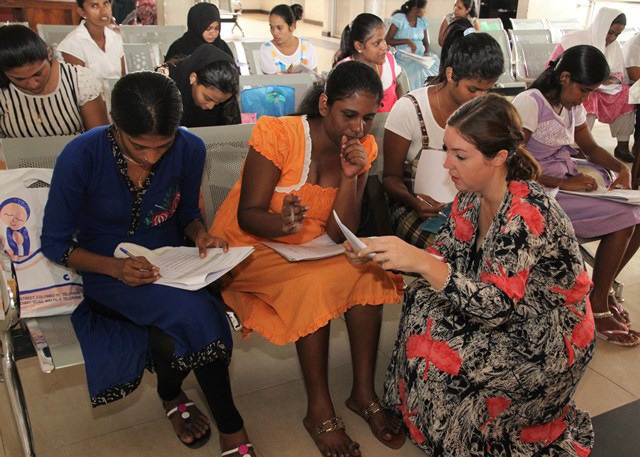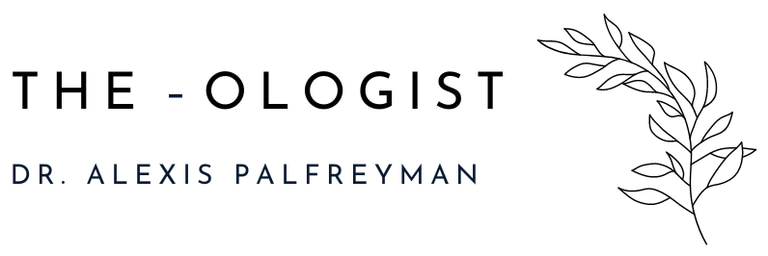Research
My approach as an -ologist
As a multi-method researcher, I explore and use a wide range of approaches, tailored to the purpose of any given research. My goal is to understand the issue thoroughly, to offer diverse stakeholders opportunities to create and make informed choices for change. In practice, this means I prioritise understanding problems first, over setting sights too early on specific solutions (i.e., interventions) or using only one discipline’s toolkit of methods to explore them. Hence, embracing a label of ‘-ologist’ to reflect true interdisciplinarity.
My research in global health and development employs the strengths of knowledge, skills, and methods from public health, anthropology, psychology, demography, suicidology, epidemiology, gender studies, forensics, and beyond. My methodological toolbox includes traditional qualitative and quantitative approaches (think interviews, surveys, reviews), with expanding use of participatory, arts-based, and remote methods.
An asset of developing my research range is the broad and global network of highly experienced researchers and implementing organisations I've met along the way. Building and collaborating with diverse research teams, and valuing expertise from feminist economics and statistics, activism, journalism, non-profits and social enterprise, and organisations from policy, creative, clinical, spiritual and indigenous spaces further improves the work I do, and our ability to understand and communicate about global health challenges more holistically.
Research focus
I design, deliver, and increasingly bridge research on:
Violence (interpersonal, gender-based, self-directed)
Global mental health and suicidology
Maternal (mental) health
Sexual and reproductive health and rights
School health programmes
Quality of care
THE PAIN PATHWAY: A SEMINAL MODEL FOR UNDERSTANDING SELF-HARM & SUICIDE IN WOMEN & GIRLS
My sustained interest in understanding the scale and trajectories through which women engage in self-directed violence has taken me to South Asia where I continue to produce multi-modal evidence on why, how, and with what consequences women and girls choose and use self-harm. This research informed my development of the world’s first model identifying a clear and common process leading to self-harm among women and girls, and its implications for decedents, survivors, and those around them. This model is called The Pain Pathway.


The Pathway aims to help people:
Appreciate why women and girls require our dedicated attention
Understand the common process they go through before and after self-harm
Think about what they and others can do to reduce people’s vulnerabilities to self-harm
My upcoming film and dedicated website introduce the concept and its potential for diverse audiences through women’s real-life stories (see Resources). I’m exploring opportunities to develop the Pain Pathway for intervention, and using original data to expand the concept to capture the experiences of men and boys.
What I'm up to
NOW...
2024 – 2026
Home grown solutions: Establishing a network of Women's Societies for Sri Lanka's estate sector
Research and Evaluation Lead, Centre for Impact on Violence and Health (CIVAH), Canada Fund for Local Initiatives
Home-grown Solutions aims to break the cycle of 'dependency-by-design development' common to Sri Lanka's plantation sector. Demand-drive by Women's Societies and in partnership with the Society for Welfare Educational Awareness and Training (SWEAT) in Hatton, we're building a formal cross-plantation Women's Network to function as an independent CBO, enabling greater self-determination for estate-sector women and sustainability to access resources and implement responses to locally rooted problems.
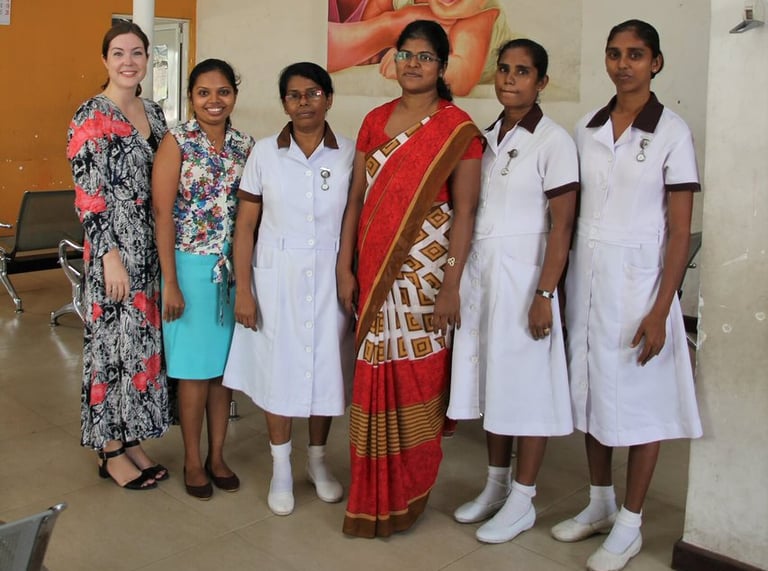

2021 – 2025
The mothers aren’t alright: Advancing gender-conscious knowledge on perinatal mental health in Sri Lanka
Principal Investigator, UCL Institute for Global Health, Naughton Clift-Matthews Global Health Fund
This grant builds upon my doctoral collaboration with the University of Kelaniya (Sri Lanka) and other stakeholders, to deliver knowledge resources on maternal mental health back to participating communities. We also expanded our interest in perinatal mental health and self-harm to adolescent girls and young women. Our synthesis of evidence on prevalence, promising interventions and outstanding research needs for adolescent perinatal mental health in South Asia and Sub-Saharan Africa is now available as a systematic review in Social Science & Medicine (see Writing).
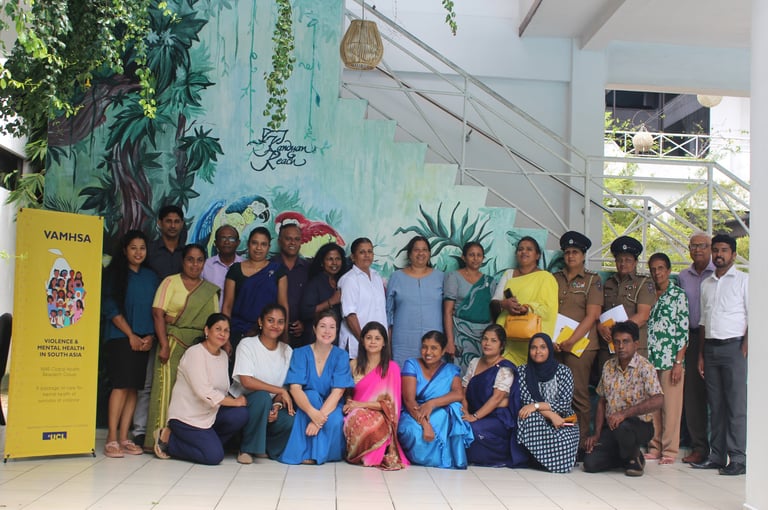

2022 – 2025
Dissemination of Violence and Mental Health in South Asia (VAMHSA): A mental health package of care for survivors of violence against women (VAW), modern slavery, and civil conflict in Afghanistan, India, and Sri Lanka
Dissemination Lead and Honorary Research Fellow, UCL Institute for Global Health, UK National Institute for Health and Care Research
Throughout 2024 - 2025, I'm leading VAMHSA's multi-modal public and policy engagement to launch Sri Lanka's seminal resource for community-based and clinical services who wish to provide evidence-based mental health support to women and adolescent survivors of violence. We're driving impact through policy roundtables, multi-sectoral community and media events, public and peer-reviewed publications, conferences, and practical workshops across Sri Lanka and India.
2020 – 2025
Advancing a gender-sensitive agenda for women’s self-directed violence in Sri Lanka
Principal Investigator, UCL Institute for Global Health, UCL Global Engagement Fund
Through this public engagement grant, I’m co-developing Pain Pathway resources including an animated film with creative partners in Sri Lanka and the UK. In 2025, I will be hosting a series of screenings and training events around the Pathway as a concept to explore its potential for use in intervention spaces. See Resources for more.


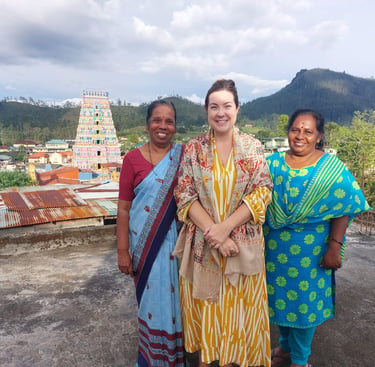




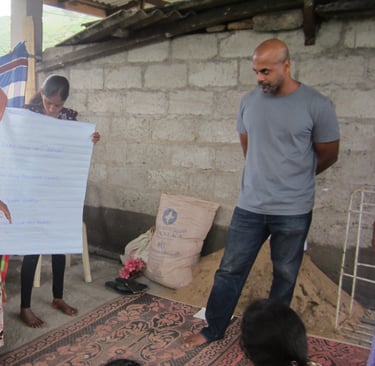
What’s recently wrapped…
2018 – 2022 (grant)
Violence and Mental Health in South Asia (VAMHSA): Developing a mental health package of care for survivors of violence against women (VAW), modern slavery, and civil conflict in Afghanistan, India, and Sri Lanka
Research Fellow, UCL Institute for Global Health, UK National Institute for Health and Care Research
In my time with VAMHSA, and the Sri Lanka research partnership, I’ve led the generation of new evidence on:
What women want by way of mental health in the context of VAW
(Pre-marital) intimate partner violence including coercive control
Emotional family violence
Youth-parent relationships, and
Impacts of COVID-19 on youth mental health.
Alongside peer researchers, I’ve co-produced:
Trilingual recommendations for supporting community-based researchers in low-resource, sensitive projects
A trilingual photography book on youth mental health, and
Led the design phase for the world's first national household study on violence and mental health among adolescents.
Scholarly publications on the mental health impacts of family violence in conflict settings, development of our care packages, and barriers and priorities for survivors' care are available or forthcoming (see Writing).

2015 – 2019
Trajectories of self-directed violence in women of reproductive age in Sri Lanka
PhD, Demography and Population Studies, Department of Social Policy, London School of Economics
Part-funded by UK Economic and Social Research Council
My doctoral work’s explicit centering of gender – and the neglected female experience of self-harm – argues that a continuation of the current approach to suicide prevention is not only insufficient, but detrimental to the project of reducing risk and social suffering for women and girls in Sri Lanka and beyond. Through mixed-methods fieldwork, I generated primary data using a large-scale survey, in-depth interviews, and a prospective hospital surveillance system. Complemented by analysis of archival forensic data on female suicides, I explored perspectives of living and deceased women, including in the perinatal period, and those affected by their use of self-harm such as service providers, families, and communities. This work informed development of The Pain Pathway as a seminal model for understanding the shared process observed in women’s use of self-harm in a South Asian context.
The full thesis is available through LSE Theses Online.
